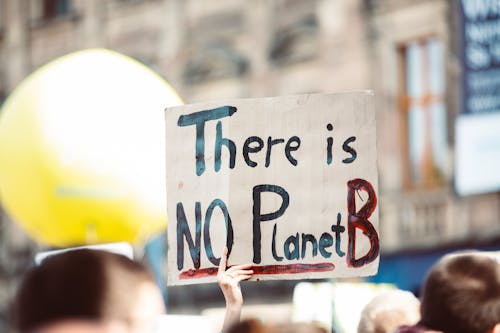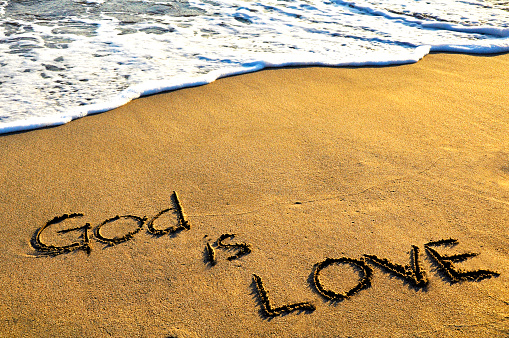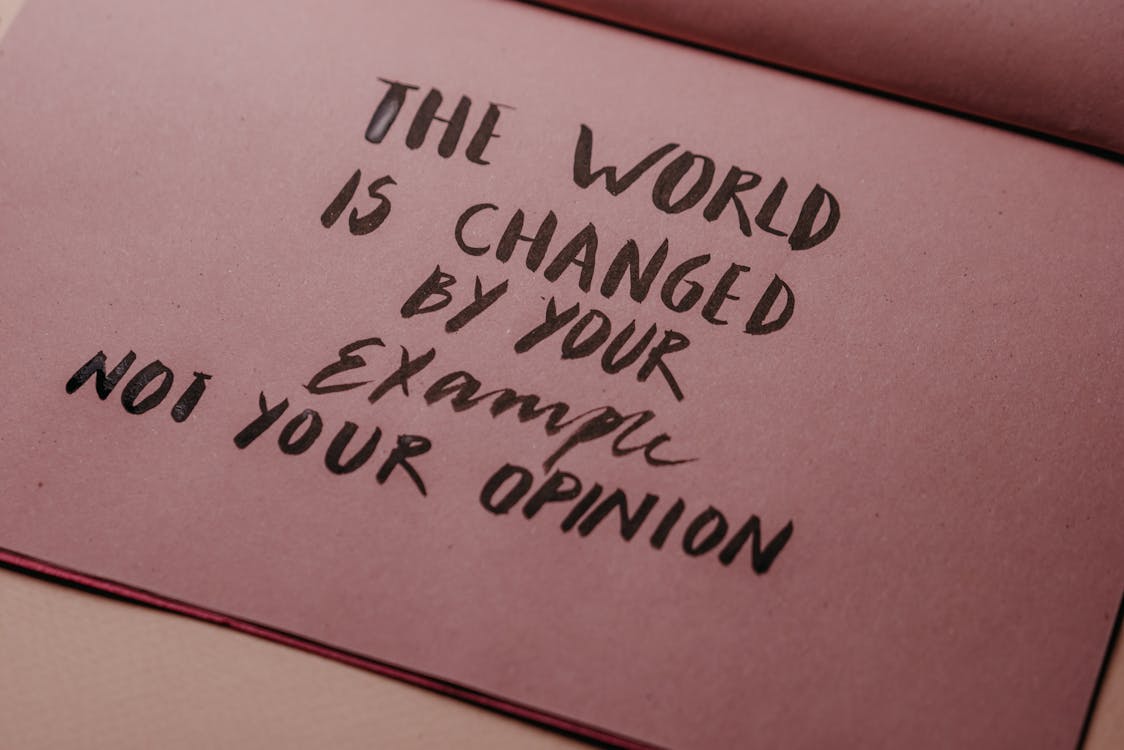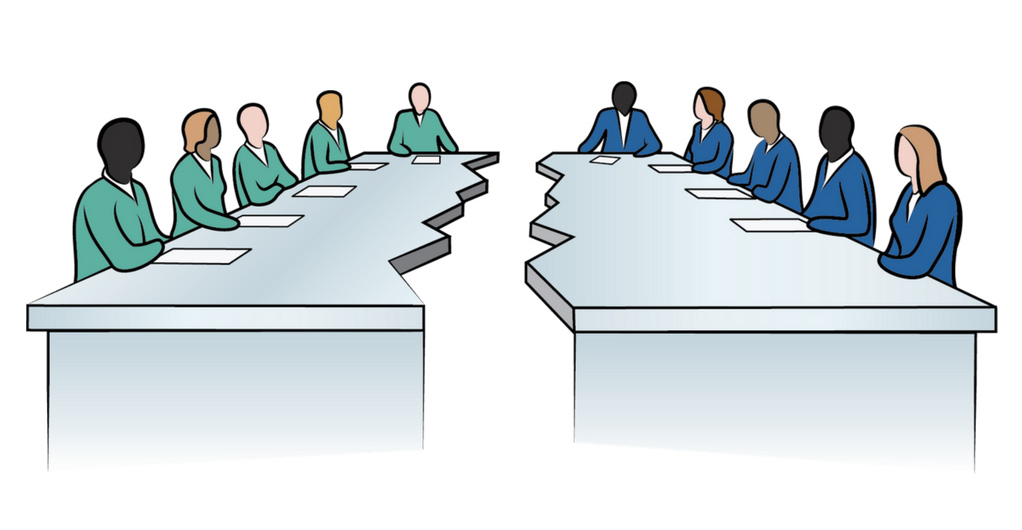
The Catholic Peace Weekly Diagnosis of the Times column by the Director of the Jesuit Center for Human Rights gives the readers some background on the recent floods in Libya.

The Catholic Peace Weekly Diagnosis of the Times column by the Director of the Jesuit Center for Human Rights gives the readers some background on the recent floods in Libya.

A novelist writes in the Sunday Talk column of the Catholic Times about "I Could be Wrong" understanding of her positions in life.
Bjorn Natiko Lindeblad, a Swede who graduated from the prestigious Stockholm School of Economics in Northern Europe, joined a multinational company and became its youngest executive. One day he suddenly quit his job and left for the forests of Thailand. He becomes a monk following the strictest precepts. One day, his teacher, Venerable Ajahn Jayasaro, gathered his disciples together and told them in a sermon that would guide them for the rest of their lives.
"Whenever a conflict is brewing, or when you confront someone, just repeat this mantra three times in your mind. Your worries will disappear like dew on the grass on a summer morning. I could be wrong. I could be wrong. I could be wrong."
This year the writer turned sixty. Last winter, her juniors gave her a surprise 60th birthday party. She said the following to commemorate her 60th birthday.
“I’m so glad that you guys praise me for being wiser, more generous, and calmer than when I was younger. But this is not what age gave me. If you get older and remain where you were, you'll just regress: more stubborn, and more narrow-minded. You become a fool who doesn't even know he's a fool. If there is any improvement in me compared to before, it is because of the blood and tears I needed to admit that I was wrong but they helped me become mature. I was embarrassed and upset, tears of blood were flowing when I admitted that I was wrong. But today, at age 60, when I look back on my life, I think that was the best thing that has happened. Praise my bloody tears!”
Looking back now, on the friends who she thought were weak who said: "My mom is sick" or "My younger sibling is still young" and needs help at home and fell behind in the rapid march of the times. Now that she thinks about it, how natural they were - after 40 years have passed, they are living the most sensible and righteous life, compared to the friends and seniors who were full of conviction at that time.
Not to mention other people, she includes herself. Perhaps the worst decision she made in her life was when she thought she was right, even with a knife at her throat. When she had no doubts about her beliefs, she was going with the worst option.
Looking back, she feels very fortunate to have gotten older. Nowadays, when she sees people who are so full of faith she feels anxiety. Sometimes she repeats to herself “That’s a hundred percent!” and then is embarrassed. When she feels distraught about things in this world, when she hates someone, or when anger rises, she repeats over and over again "She could be wrong, I don’t know everything." [When one is not distraught and overcome with hate and anger faith is not a problem--- reason should be in control]
Then, strangely enough, her anger and hatred loosen up a little, a quiet breath comes through, and only then does her soul enjoy a little peace. Then, she will straighten her stiff shoulders and think about it all very calmly. Perhaps it is then that she is hearing Jesus' quiet whisper: "Do not judge".

A Philosophy professor at a Catholic University in Diagnosis of the Times column of the Catholic Peace Weekly considers a topic that receives a great deal of coverage in modern times.

The Catholic Times in its 'Vision' column has an article on the place of lyrical poetry in our world today.

Gandhi was once asked for a message to the American people. Mr. Gandhi replied: "Why should I send any message? My life is my message." So it is with us—our lives become our message. In the Catholic Times, the priest columnist in Light of the World gives the readers some ideas on how to make our lives our message.
Even among non-Christians, there are many great many who can serve as role models for the world. Among them, we have Gandhi the father of India who said: "I am a poor mendicant. All I have is a spinning wheel, a rice bowl used in prison, a can of goat milk, six shabby bedclothes, a towel, and a not-so-great reputation." I consider him a great person. Gandhi, who was selected as the Person of the Year by Time magazine in 1930, presented many precious teachings to the human family through the ideas of non-injury, non-violence, and non-possession against British colonial rule.
"He who seeks the truth must be humbler than dust." "The more educated a person is, the more he should travel in the third class." "Non-violence is the most powerful force that humanity can utilize." "There is no path to peace. Peace is the way." One of the people who best practiced Jesus' teachings to love God and even love one's enemies was Gandhi.
Life with God—It is said that Gandhi earnestly hoped that India's independence and the dignity of its people would be preserved, but that he did not wish anyone to die because of it. He also lived a frugal life, working in solidarity with his poor neighbors, and was a man of prayer. Throughout his life, he sought to implement justice and tried to become a sincere and truthful person. This is the life that God taught us.
Of course, his life was difficult, many good people in India suffered under the oppression of powerful countries. But Gandhi and his efforts to preserve goodness preserved what was most precious. This is life with God.
The Catholic Church also emphasizes through its social doctrine that people are righteous before God (#260 of the Brief Social Doctrine), and that peace comes from the fundamental relationship between humans and God, a relationship characterized by righteousness. (#488)
In the face of widespread hatred in society, a life lived with God, is the purpose of social doctrine. What is needed for that is a life oriented toward love, prayer, labor, frugality, and charity toward neighbors, as shown by Jesus, numerous saints, and Gandhi. We emphasize that it changes society. Moreover, these virtues are urgently needed by leaders and politicians. Being hostile towards those who have different opinions telling them to fight, and showing hatred and anger, only creates a vicious cycle.
Laws and principles are also important. However, there are many things in the world that cannot be solved with just that. Dialogue, compromise, tolerance, are often necessary. So, Gandhi proposed seven vices, and among them are ‘politics without philosophy’ and ‘economy without morals.’ It is the biggest factor that makes our society difficult today. I must first live a life that pursues God's teachings, a life that pursues spirituality rather than just material things, and a life that practices reconciliation and forgiveness.
"Only through the mutual activity of individuals and peoples sincerely working for the good of all human beings can true universal brotherhood be achieved." (Summary of the Social Doctrine, Paragraph 145)

In the Catholic Peace Weekly a Catholic University professor gives the readers his thoughts on the joy of the life of a child of God.
"When we meet Jesus, our lives change into a joyful feast." It is a phrase that beautifully expresses the Christian life.
The Gospel of John announces the beginning of Jesus' public life with the story of the wedding feast at Cana. This may be to convey that because the Word became human and lives among us, our life with Him becomes a feast that cheers the heart like wine.
Just as alcohol cannot be left out at a banquet, if Jesus is missing from the life of a Christian, it will be as dull and sluggish as ‘steamed bread without anchovy’. Faith is a life with Jesus and a joyous feast. This is the core message of the New Testament. In fact, Jesus lived his life like a feast and invited everyone to that life of joy.
The 'Sermon on the Mount' contains the core of Jesus’ teachings—an invitation to a life with God. Jesus taught us how to live joyfully, not through old-fashioned teachings or commandments imposed as obligations but the life of a child of God who knows God and calls Him 'Abba, Father!'
The God Jesus taught us is a merciful Father who creates and cares for all things in the world and generously provides for his children.
"If you then, being evil, know how to give good gifts to your children, how much more will your Father in heaven give good gifts to those who ask him!" (Matthew 7:11).
The life of a child who calls God their father can only be one of joy and delight. It is the comfort, consolation, and reassurance that one feels in the warm embrace of one's father, free from all the cares and worries of the world. So there is no need to worry, Jesus says. "So don’t worry about tomorrow. Tomorrow will worry about tomorrow. Enough are the troubles of each day!"(Matthew 6:34)
Of course, human life is full of hardships, trials, and worries. Everyone's life situation is different. There are times when we are poor, times when we are sad, times when we hunger and thirst for righteousness, and times when we are persecuted. There are times when the world ridicules us because we are gentle, merciful, pure in heart, and dream of peace. However, God's children see God the Father's great will and plan beyond what the world sees, and we believe and hope in the kingdom of God promised to our children. And although everything in the world will pass away, he is confident that God the Father's promises will be fulfilled in His children, and that His justice and mercy will ultimately triumph.
The joy of living as a child of God does not come automatically. It is a series of spiritual battles that fight against despair and discouragement without giving up hope in the face of the hardships that come with it every day. In order to win that fight, we must believe in the presence of God the Father, who is always with us, and place our hope in His promise that He will care for and protect us until the end. In order to do so, we must listen to the voice of God who always speaks to each of us anew, and open our eyes to the love of God who gave everything for us through his Son.
But it is also a battle of joy. No matter what situation we are in, when we are confident that God is with us with infinite love and will protect us until the end, we will overcome many situations for which no human solution is possible, and we will experience true happiness as children of the Father. Because you will taste it here and now.

The Diagnosis of the Times column of the Catholic Peace Weekly gives the readers some background on the relationship between the Wisteria and Arrowroot plants and problems that may arise.
The priest columnist was born and raised in the city and consequently has little knowledge about plants and animals. When he climbs a mountain near Seoul or goes to the countryside he is amazed to see how much people know about the different trees and flowers. Nevertheless, there is one tree that he knows well, and that is Wisteria.
When he was a child, there was a bench made of rattan in one corner of the school playground and in a vacant lot of an apartment complex. Wisteria, which climbs iron pillars and provides cool shade, is a familiar plant even in urban areas. The Kudzu plant is similar to the arrowroot plant and they both cling to what they come in contact with in their growth.
When watching TV programs that mainly introduce the lives of people living in remote mountainous villages, scenes of digging up roots of kudzu trees often appear. The plant whose roots can be drunk as juice or dried and used is similar to the arrowroot plant.
Wisteria and kudzu are both stem plants and are said to grow by climbing up other trees. However, it is said that when these two plants meet each other, it becomes difficult to separate them. As the kudzu grows, it wraps itself around the other tree in the right direction, while the wisteria grows in the left direction, so if these two plants meet, it will be impossible to untangle them. The word in Korean that comes from this contact is 'Conflict (葛藤,)', he thinks it is a good name.
When he looked up the Korean word conflict in the dictionary it was defined as: 'hostility or conflict between individuals or groups due to different goals or interests'— labor-management conflict, generational conflict, regional conflict, etc.
These words complicate our minds, like two intricately twisted vines, like a twisted skein of thread that we don't know where it begins and where it ends. Efforts to calmly unravel each tangle quickly reach their limits, and the urge to chop down the plant with an ax or cut off the tangled parts. Not only do we need to think about social and political aspects, but conflict is one of the things that everyone wants to avoid, but cannot avoid. We have to deal with others with whom we are in conflict, misunderstand, and distrust within families, the workplace and society. So, is there an easy way to resolve the conflict?
Recently, conflict on the Korean Peninsula has been increasing. On August 18, President Yoon, U.S. President Joe Biden, and Japanese Prime Minister announced the ‘Camp David Principles, Spirit, and Pledge’, which contains the joint vision and partnership of Korea, the United States, and Japan. Evaluations continued that it raised security cooperation between the three countries to a new level and formed a collective security system that effectively keeps China in check. Some argue that security has become stronger due to strengthening ties between value alliance countries, while others argue that security has become more unstable due to the breakdown of balanced diplomacy between the United States and China
He doesn't know how the outcome will play out, but it seems difficult to deny that the conflict structure between Korea, the United States, and Japan versus North Korea, China, and Russia has become more solidified. Right now, North Korea's arms trade with Russia is increasing, and its dependence on China is also increasing. The conflict between North and South Korea was difficult to resolve just by coordinating the positions of the parties and restoring trust, but it is being sucked into a confrontational structure even further within the international situation.
Let’s pay attention to the definition of 'conflict' again. If you cannot cut down or burn the other side's trees, the conflict should be managed rather than escalated. Care must be taken to prevent it from developing into a bigger conflict. This is by no means a cowardly act, but a wise one. It is relatively easy to speak harshly and act aggressively. It is much more difficult to come up with a solution to resolve the conflict. Although it is difficult, he hopes we can take the path toward peace. That's why politicians exist, and isn't politics necessary for the community?